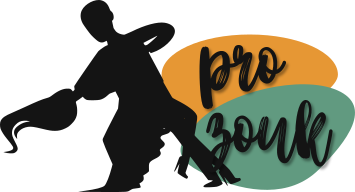Basics vs. Creative Complexity: What Follows Really Want
Author: Laura Riva
Source: https://zouksidedown.wordpress.com/2014/03/21/7-ways-to-improve-your-connection-while-dancing/
Many leads I’ve met are frustrated by a paradox they see in the dance world. It can often seem that follows say “I want a guy who leads solid, connected basics – not advanced patterns”. Yet, the same follow is completely smitten by a lead with really, really cool moves that challenge the follower.
Obviously, this can lead to a fair amount of frustration. Leads *really really* want to be a great partner dancer and give their follow an amazing time. They want to look good on the floor, and be that lead that the follows can’t wait to dance with.
You want to listen to the advice to get a really solid foundation, but it feels like that foundation is never actually enough to make you a favourite dancer in your scene.
So, what gives?
Well, basics probably aren’t going to make you my favourite dance partner- but it will make you a *good* dance… even possibly a *great* dance! It may even be one of my most fun dances that night.
Despite the dance probably not being my favourite, I would still rather dance with a lead that has solid basics and connectionthan one who does advanced patterns. They may even be one of my preferred partners.
No, I’m not contradicting myself. See, there’s an unspoken end to that phrase:
“I would rather dance with a lead that has solid basics and connection than one who does advanced patterns with no regard to connection, the music, or basics.”
Obviously, if you can do solid basics, have epic connection, are crazy musical, and have REALLY COOL patterns, you’re going to be among my favourites. But, those dancers are really rare. Like, REALLY rare. Many scenes don’t even have a single lead at that level. Why? because it’s really really hard to GET to that level. Most of the time, those people are doing dance professionally.
BUT, if you aren’t one of those super-epic dancers (like most of us), there’s an order to what I like most in a partner:
- Connection
- Basics
- Musicality
- Creativity
- Cool Patterns
There’s a reason for this order. Most things in the list require an earlier number in order to be pleasant. For example:
- Cool patterns are useless without musicality, basics, and connection. They have no relationship with creativity (you can just mimic patterns you’ve seen – even if super complicated)
- Creativity relies on knowing the basics and connection. Most creative dancers are also highly musical, because they are creating movements in order to fit the music. Creativity without musicality can be fun as an experiment, but is best used with some sort of musicality.
- Musicality is useless without basics and connection.
- Basics are best with great connection.
- Connection can exist without any other pieces, and it will be safe and pleasant.
Therefore, I’d rather dance with someone who only has connection and basics in comparison to someone who has musicality or patterns – but no foundation. It’s safer and more comfortable.
In that case, what should leads focus on in order to become ‘great’ dance partners?
Well, in my opinion, they should focus on basics and connection first. Once you understand what the basics are (and trust me, you will ALWAYS still need to improve them as you progress), you can start the process of becoming musical and creative. This can include learning more advanced patterns – at a SLOW speed.
I personally like to start introducing musicality relatively early, but only in relation to the basics. For example, slowing down or ‘hitting’ an accent with a movement you are comfortable with. Even a basic step can be ‘musical’, if it is danced in a way that ‘feels’ the music. Musicality does not equal complexity, after all.
The SLOW speed is critical here. Many leaders fear that follows will become ‘bored’ if they move slow, or the lead feels uncomfortable moving at the slow speed. Followers (at least in many dances) do not get bored by slow. It gives us a chance to connect with you. If the lead is feeling uncomfortable dancing at a slow speed, it usually means that they haven’t mastered that movement yet.
Learn to dance at a slow speed, and you will find it easier to become a really good lead.
Sidenote: the slow speed is awesome for learning more complicated patterns because it gives you time to think and connect. If you can maintain connection, you can explore and be creative with more complex movements.
You can become a favourite dancer – but only with hard work. Most people underestimate the amount of work it takes. You need training, social dance experience, solo practice, partnered practice, and more in order to really ‘master’ a dance – and you’ll still have more to learn. Even your teachers should still be training and growing. (Sidenote: if they’re not into improving themselves, it’s not a great sign…)
There’s no special ‘timeline’ on becoming a favourite dancer – and you will never be everyone’s favourite. How long it takes you to become a ‘favourite’ depends on your background, physical abilities, capacity for learning, dedication to training, and more.
But, the path to becoming a favourite does not reside in complicated patterns at fast speeds. The answer can be found in becoming a whole dancer – with connection and basics at the core.
|
2
4638 |





 Русский
Русский

Delete a comment?